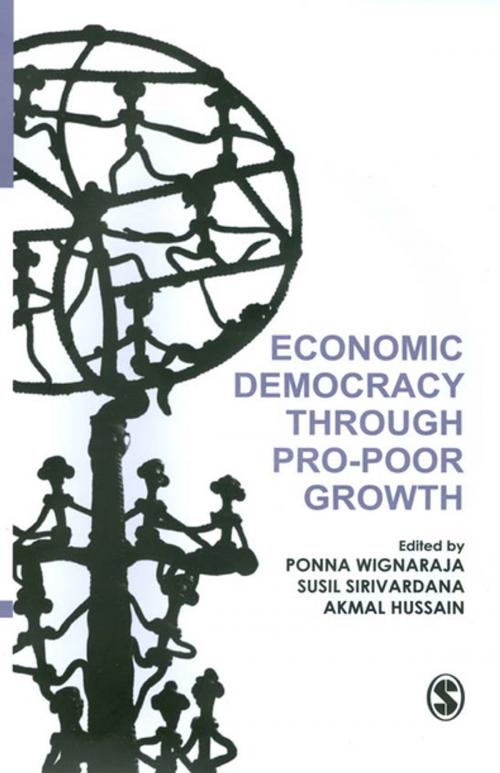Economic Democracy through Pro Poor Growth
Business & Finance, Economics, Economic Development, Development & Growth| Author: | ISBN: | 9789352802425 | |
| Publisher: | SAGE Publications | Publication: | February 4, 2009 |
| Imprint: | Sage Publications Pvt. Ltd | Language: | English |
| Author: | |
| ISBN: | 9789352802425 |
| Publisher: | SAGE Publications |
| Publication: | February 4, 2009 |
| Imprint: | Sage Publications Pvt. Ltd |
| Language: | English |
This volume addresses a central dilemma of our times from a perspective based on lessons from the ground—persistence of structural poverty after sixty years of independence amidst rapid economic growth, widening social anomie, political crisis and failing policy.
.
The collection presents an alternative school of thought which has been evolved by scholars and activists over decades, in which the poor are presented not as the problem but as an essential resource. Among this volume’s distinguishing ideas are: a new role for the poor, raising mass consciousness, a core methodology for transformation, restructuring the state, pro-poor partnerships for all social constituencies, insistence on holism and values, learning from the poor and new social movements, and eschewing a priori thinking. This perspective powerfully argues the validity and feasibility of sustainable and transformative societal change.
.
The compilation is rich in lucidly presented case studies and illustrative examples. The strategies advocated would catalyse the process of achieving political and economic democracy at the grassroots and facilitate sustainable development. They would also help in the democratization of the phase of transition and growth. This work is an excellent reference source for development economists and students, researchers and faculty studying governance, poverty and human rights, and issues of security and human rights.
This volume addresses a central dilemma of our times from a perspective based on lessons from the ground—persistence of structural poverty after sixty years of independence amidst rapid economic growth, widening social anomie, political crisis and failing policy.
.
The collection presents an alternative school of thought which has been evolved by scholars and activists over decades, in which the poor are presented not as the problem but as an essential resource. Among this volume’s distinguishing ideas are: a new role for the poor, raising mass consciousness, a core methodology for transformation, restructuring the state, pro-poor partnerships for all social constituencies, insistence on holism and values, learning from the poor and new social movements, and eschewing a priori thinking. This perspective powerfully argues the validity and feasibility of sustainable and transformative societal change.
.
The compilation is rich in lucidly presented case studies and illustrative examples. The strategies advocated would catalyse the process of achieving political and economic democracy at the grassroots and facilitate sustainable development. They would also help in the democratization of the phase of transition and growth. This work is an excellent reference source for development economists and students, researchers and faculty studying governance, poverty and human rights, and issues of security and human rights.















